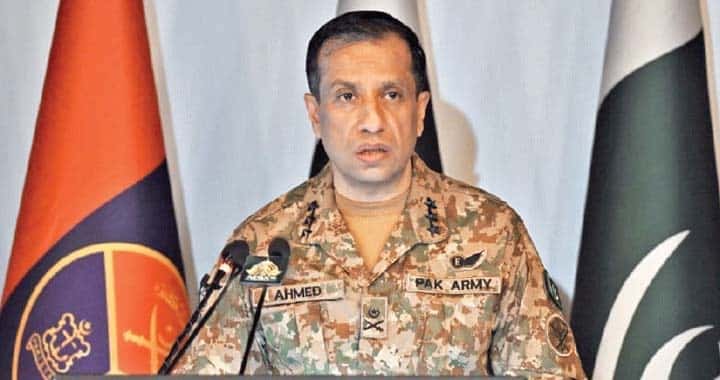In Peshawar today, the military’s spokesperson served a blunt memo to terror helpers, or anyone caught playing friend to foreign terror outfits, and yes, that thin line apparently includes some big-name provincial players. At a press conference, the Director‑General ISPR laid out not-so-subtle options for facilitators who’ve been warming the hands of terrorists, choose one of three doors, because “none” is no longer a comfortable strategy.
His three choices, as delivered with military clarity:
Hand the foreigners over to the state.
Join the state in fighting those foreigners.
Or, stop pretending, prepare for a Pakistan Army operation.
Lovely options, all equally inconvenient if you prefer cozy deals and plausible deniability.
The DG didn’t stop at ultimatums. He spelled out the cost of that cozy deniability, the terrorists and their enablers will be squeezed until there’s nowhere left to hide, and he asked the public to back the effort to remove this malign presence from the country. No mystery there: when citizens and police are paying with their lives, the moral argument for action is straightforward.
A few especially awkward facts were also on the table. The DG noted that the army has repeatedly been forced to do work traditionally assigned to the police, after all, how can the Counter Terrorism Department deliver results when it’s down to just 3,200 personnel? Spoiler: it can’t. Staffing shortfalls, half-measures, and political interference add up to the kind of vacuum where bad actors thrive.
And then came the indictment many are whispering about out loud: in Khyber Pakhtunkhwa, terrorism isn’t merely a security problem, it’s become entwined with politics and crime. “We put our politics ahead of counterterrorism,” the DG said, blaming the surge in incidents there over recent years on a political-criminal nexus that has tolerated, if not actively facilitated, extremists. He also pointed at one blunt administrative failure: the revised National Action Plan wasn’t implemented, and partisan politics remains a major reason why.
So yes, remember that cheeky piece about “Frontline Fantasy”, turns out the satire ages poorly when the frontline is being enabled from within. Whether facilitation is active or passive, the effect is the same, sanctuaries persist, fighters regroup, and the security burden shifts to the national military and civilians who pay the price.
Bottom line: the army has drawn a red line and handed facilitators a menu. Now the country will see whether those who’ve been enabling violence will pick an option, or be picked for one.





